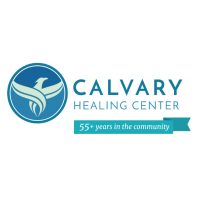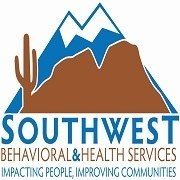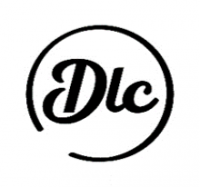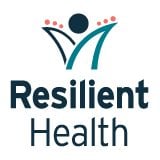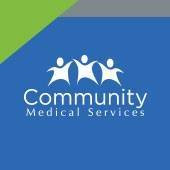About This Arizona Facility
Transitions Counseling and Consulting Northwest, nestled in Glendale, AZ, stands out as a beacon for individuals striving to overcome addiction to drugs or alcohol. Known for its outpatient addiction treatment and counseling, this center adopts a personalized approach, offering a range of specialized programs for adults, adolescents, and children. Unique in its dedication, the facility focuses on easing the transition into sobriety with compassion and understanding.
- Tailored Intensive Outpatient Programs (IOP): Separate IOPs for adults and teens, focusing on dialectical behavior therapy among other therapies, offering a structured yet flexible path to recovery.
- Comprehensive Day Treatment for Teens: A specific program running five days a week providing intensive support and therapy specifically designed to meet the unique needs of teenagers.
- Wide Range of Covered Insurances: Accepting numerous private insurance plans including Aetna, Blue Cross/Blue Shield, and Tricare, facilitating accessible care for those in need.
Boasting accreditation from The Joint Commission on Accreditation of Healthcare Organizations (JCAHO), Transitions Counseling and Consulting Northwest prioritizes high-quality, evidence-based care. Their outpatient and intensive outpatient programs are specifically designed to foster growth and healing in a supportive environment.
Addressing a broad spectrum of addictions, including substance abuse and related mental health issues, the center utilizes dialectical behavior therapy, group and individual sessions, and expressive art therapy. Offering both individual and group counseling, the clinic is committed to teaching vital skills such as core mindfulness and interpersonal effectiveness to promote lasting sobriety and personal development.
Genders
Ages
Modality
Additional
Accreditations

JCAHO
Conditions and Issues Treated
A drug abuser needs help because if no one helps them, they will not leave their vicious circle.
People who abuse drugs are likely to suffer from an addiction, which can cause serious health problems. It can also cause quarrels with people around them. It is common for drug abusers to have difficulty holding down jobs or relationships, but sometimes people around them can be quite tolerant. There are cases where the families of the drug abusers do not want to see them get any help, and the subject becomes controversial.
When it comes to helping drug abusers get sober, there are many options to choose from. It is essential to state that there is no “correct” way of doing things. People are different, and they need different types of help to get over their addiction.
Levels of Care Offered at Transitions Counseling and Consulting Northwest
This center offers a variety of custom treatment tailored to individual recovery. Currently available are Drug Rehab, Outpatient, Partial-Hospitalization, with additional therapies available as listed below.
Individuals struggling with drug addictions can get help from several treatment options, including inpatient and outpatient programs. Outpatient drug treatment programs can also provide patients with different levels of care, usually depending on the patient’s degree of addiction.
At an outpatient program in Glendale, a patient will attend a recovery program during the day and return home in the evening. Suppose a patient is struggling with drug addiction. In that case, an outpatient program can serve as an effective transition point during the recovery process.
Partial Hospitalization Program is when a person in rehab takes part in regular treatment sessions, at least five days per week (and sometimes six), during all or most hours of the day, at Transitions Counseling and Consulting Northwest. These programs vary in length, but they can last anywhere from one month to three months—or longer.
This is done through the use of a method called “therapeutic community.” PHPs are very intense, and they are best for individuals who have completed a successful, medically supervised withdrawal.
Therapies & Programs
Individual therapy is a critical component of addiction recovery. It allows the patients to go deep into their core issues and discover how to handle those problems better. Therapy can be conducted in individual sessions as well as group settings. In individual therapy for addiction, the patient meets with their therapist one-on-one to focus on the underlying issues. This allows patients to open up and discuss personal topics they may not feel comfortable discussing in a group setting. This type of therapy can help develop solutions specific to each patient, which helps speed up the recovery process.
Group therapy helps prevent addicts from feeling isolated or unique in their situation by offering a sense of comfort and fellowship. It also creates a forum for addicts to build their support systems and learn from each other. The group therapy sessions at Transitions Counseling and Consulting Northwest occur in a group setting rather than one-on-one to create a safer, controlled environment where addicts feel comfortable.
Dialectical Behavior Therapy was developed in the 1980s to treat chronically suicidal individuals. It is a cognitive-behavioral therapy that combines strategies derived from Zen Buddhism, such as mindfulness training. DBT has been adapted for use with other types of psychiatric problems, including substance abuse and personality disorders. DBT aims to help patients change their thinking and behavior, instead of relying on medication.
Cognitive Behavioral Therapy (CBT) is a common therapeutic approach to help drug addicts. It teaches addicts new ways of thinking and behaving so that they can avoid relapse. There are several forms of CBT used in drug rehabilitation centers.
Cognitive Restructuring helps addicts identify faulty, negative thinking so that they can work together with the therapist to find healthier ways of thinking, resulting in better decision-making.
Cognitive Behavioral Therapy for Addiction uses the principles of CBT to help treat addiction. It focuses on specific aspects of each person’s thinking, feeling, physiology, and behavior. It aims to identify specific problems in these areas and create a personalized treatment strategy.
Eye movement desensitization and reprocessing is a form of psychotherapy that allows individuals to heal from the emotional distress that is the result of disturbing life experiences. It uses alternating bilateral stimulation the therapeutic process where the patient moves his/her eyes back and forth while recalling distressing thoughts or feelings can be facilitated by this eye-movement technique.
- It is effective to treat a range of different problems such as: anxiety, depression and grief.
- short term therapy (8-16 sessions) and normally 10 sessions is maximum treatment time required for treating emotional problems.
- has been found to be as helpful as cognitive behavioural therapy or exposure therapy.
Drug addiction can be a difficult thing to overcome, but with the help of nutrition therapy, it can become a little bit easier. Nutrition therapy provides addicts with the nutrients they need to recover both physically and mentally. This type of therapy also helps addicts to have more energy and strength to fight cravings. Most importantly, good nutrition helps to keep addicts strong against the physical symptoms of withdrawal.
Nicotine replacement therapies are effective because they provide you with the nicotine you are addicted to without inhaling carcinogens from cigarettes. Some types of NRT include nicotine gum, nicotine patches (transdermal systems), nasal spray, and lozenges. The benefits of using NRT can include reducing the risk of heart disease and cancer.
Payment Options Accepted
For specific insurance or payment methods please contact us.
Is your insurance accepted?
Ask an expert, call (888) 674-0062
Additional Details
Specifics, location, and helpful extra information.
Glendale, Arizona 85308 Phone Number(602) 497-2478 Meta DetailsUpdated April 15, 2024
Staff Verified
Patient Reviews
There are no reviews yet. Be the first one to write one.
Glendale, Arizona Addiction Information
Arizona has some of the highest rates of prescription drug abuse in the United States. Methamphetamines, heroin and morphine are among the most commonly abused substances. Prescription pain relievers were prescribed to 348 million people in 2012, enough to medicate every adult in Arizona for 2 full weeks. The number of people with substance use disorders in Arizona has remained relatively constant over the past few years.
Glendale, Arizona has had a big impact on the community concerning drug addiction and abuse. According to statistics, nearly 10% of Glendale residents reported past-month use of an illicit drug. Prescription and synthetic opioids were involved in 5,669 drug overdose deaths in 2016. There are many different types of drug treatment facilities in Glendale, Arizona. Some of the most common types of treatment include detoxification, inpatient rehabilitation, and outpatient rehabilitation.
Treatment in Nearby Cities
- Fort Defiance, AZ (230.1 mi.)
- Anthem, AZ (16.1 mi.)
- Arizona City, AZ (68.9 mi.)
- Las Vegas, AZ (243.4 mi.)
- Scottsdale, AZ (19.5 mi.)
Centers near Transitions Counseling and Consulting Northwest
The facility name, logo and brand are the property and registered trademarks of Transitions Counseling and Consulting Northwest, and are being used for identification and informational purposes only. Use of these names, logos and brands shall not imply endorsement. RehabNow.org is not affiliated with or sponsored by Transitions Counseling and Consulting Northwest.



